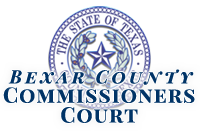As the weather heats up, so does the threat of severe weather in Texas. Many homeowners may be finding themselves having to deal with damage from lightning, high winds and hail. Now is also the time when unethical contractors might be showing up trying to con people for property repairs.
Unfortunately, every Spring and Summer we see “storm chasers”, or shady contractors making visits to homeowners just hours or days after severe weather passes through their area offering repair services. Although not all storm chasers are scammers, they may lack the proper licensing for your area, offer quick fixes, or make big promises they can’t deliver. It’s an important time to remember to do your research before deciding on a contractor to use for repair work and never pay full price for a project up front.
Better Business Bureau is also warning contractors to beware of storm chasers who offer to pay local construction companies to use the business’s name, reputation, and phone. They masquerade as a local business, collect the insurance money and then move on, leaving the real business to deal with unsatisfied customers.
Here are some tips on avoiding a shady contractor…
• Contact your insurance company. Ask about your policy coverage and specific filing requirements. Save all receipts, including those for food, temporary lodging, or other expenses that may be covered under your policy. Your insurance company may also have recommended contractors, but still make sure to check those contractors first at bbb.org.
• Do your research. Find businesses you can trust on BBB.org. A BBB Accredited Business meets eight standards for trust, including advertising honestly, telling the truth and being transparent. Check the Texas Department of Licensing and Regulation to make sure if the type of work your contractor will be doing requires a license. Ask for references from friends and relatives and get everything in writing.
• Resist high-pressure sales. Some storm chasers use tactics such as the “good deal” you’ll get only if you hire the contractor on the spot. Be proactive in selecting a contractor and not reactive to sales calls. Be especially careful of door-to-door contractors. Many municipalities require a solicitation permit if sales people go door-to-door. Ask for identification. It’s always best to get three estimates from different contractors.
• Don’t sign over insurance checks to contractors. Get an invoice from the contractor and pay them directly (preferably with a credit card, which offers additional fraud protection over other forms of payment). Don’t sign any documents that give the contractor any rights to your insurance claims. If you have questions, contact your insurance company or agent.
• Be wary regarding damages you can’t see. While most contractors abide by the law, be careful allowing someone you do not know to inspect your roof and other areas of your house. An unethical contractor may create damage to get work. The same goes for attics, crawl spaces, ducts and other places you cannot easily access or see for yourself.
To learn more, visit bbb.org/storm.








